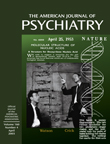To the Editor: We appreciate the opportunity to reply to each point made by Dr. Quitkin and his colleagues. Our overview did note the latent class analysis study by Kendler et al. (1996) but without comment as to whether it supported atypical depression as an entity or not. Those authors noted the intrinsic limitations of latent class analysis (“It cannot prove that such discrete classes exist”) and that their identified classes might “reflect only differing points on a single underlying continuum of severity.” Dr. Quitkin et al. are correct that items will be independent within classes in latent class analysis. This could be expected to hold in the atypical latent class defined by DSM-IV criteria, provided these reflect all key items from the original studies. If DSM-IV criteria, however, define something closer to a syndrome, then independence is not to be expected. More pertinently, we found independence (very low associations) both in the subjects with atypical depression and in the entire group, indicating that not much would be accounted for by any latent variable.
Dr. Quitkin et al. argue that our “second misconception” lies in our suggestion that symptom interdependence is the gold standard for validation of a phenomenological syndrome. We made no “gold standard” reference but, as noted, interpreted lack of interdependence of accessory features and low internal consistency as arguing “against a syndromal construct” (p. 1476), later postulating differential determinants of its heterogeneous constituents.
In the Zurich study by Angst et al. (2002), adjusted odds ratios were reported rather than correlation coefficients, preventing judgment about comparative associations. Our results appear similar to those from another recent U.S. study
(1), in which mood reactivity correlated trivially (i.e., coefficients of <0.10) with all accessory features. Like us, those authors challenged mood reactivity as an essential component of atypical depression. We would not be surprised by any study identifying mood reactivity as a predictor of a poorer tricyclic antidepressant response when studies of true tricyclic antidepressant responders indicate superior responses for those with melancholic depression (in which a nonreactive mood is held as a key feature). Ipso facto, those with nonmelancholic depression (and a more reactive mood) should show a poorer tricyclic antidepressant response.
Our study group was one of convenience. Findings similar to ours (including the implication of panic anxiety and social phobia) in the recent independent Providence study
(1)—in which relevant subjects had a mean episode duration of 349 weeks—argue against episode duration as a distorter. However, despite such empirical support as the statement by Dr. Quitkin et al. that “atypical depression is a chronic illness,” there is a conceptual paradox if mood reactivity is a mandatory feature when the DSM-IV (p. 385) states that “mood may become euthymic (not sad) even for extended periods of time if the external circumstances remain favorable.” We suspect that chronicity more refers to (and emerges from) predisposing personality and anxiety trait features than any superimposed depressive states.
We concede and regret the errors in interpreting or reporting the studies by Mannuzza et al. (1995) and McGrath et al. (2000). However, we neither stated that Joyce and Paykel (1989) presented new data nor interpreted the Robinson et al. studies (e.g., 1978) as demonstrating that phenelzine is superior to tricyclic antidepressants for anxious depression.
It is important for Dr. Quitkin and colleagues to address the main thrust of our article. Following our argument
(2) for a spectrum model (linking the personality and phenotypical picture) for modeling the nonmelancholic depressive disorders, Dr. Quitkin et al.
(3) nominated atypical depression as a paradigm example, stimulating our study. Our results favored interpersonal rejection sensitivity as a primary feature, with that personality style perhaps disposing to or being otherwise associated with certain expressions of anxiety (social phobia and panic disorder). If the roots of atypical depression are planted more firmly in a personality-weighted anxiety base, it is unlikely to be a primary depressive entity.

